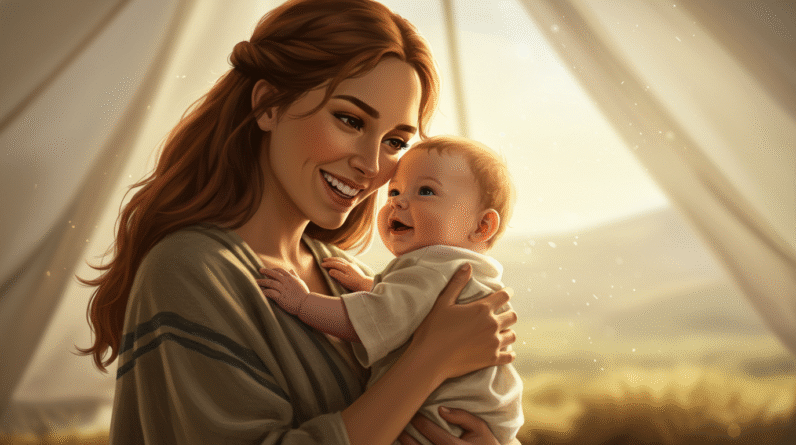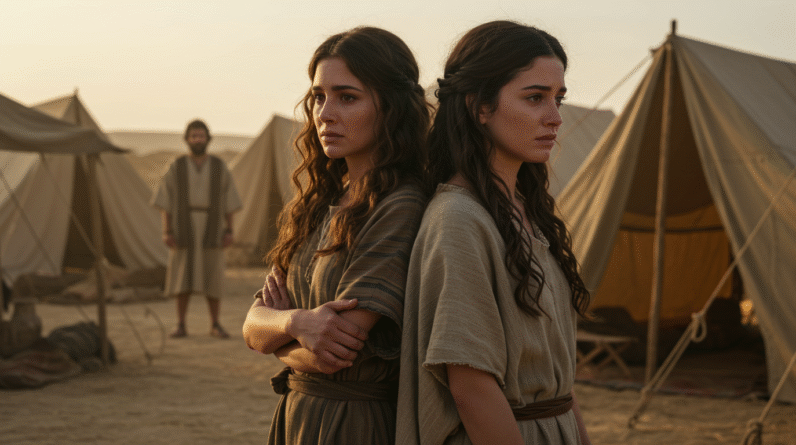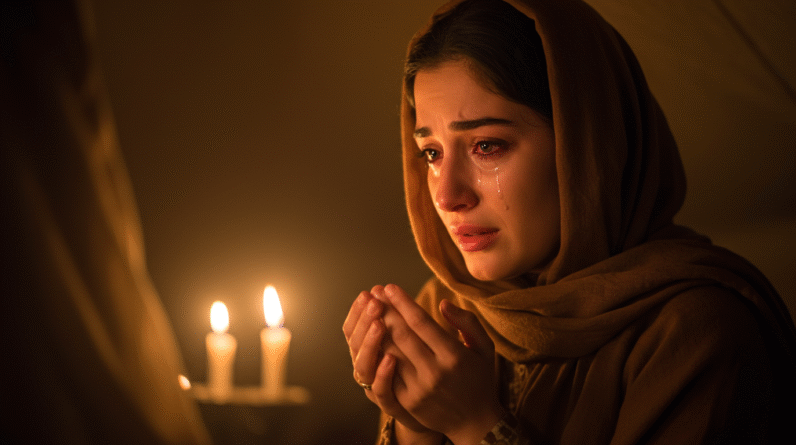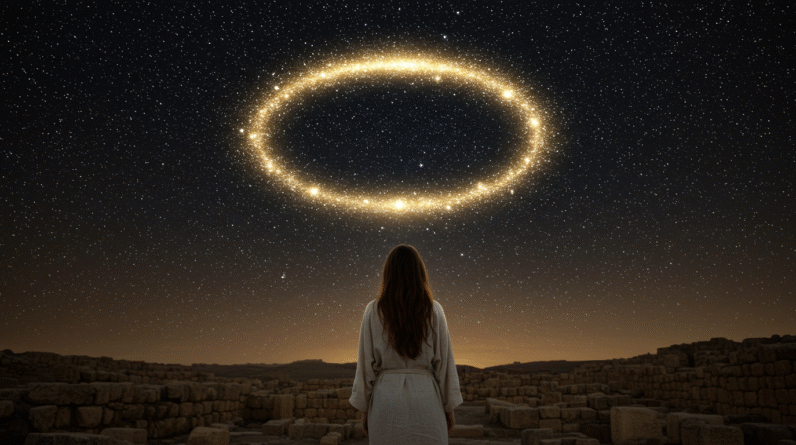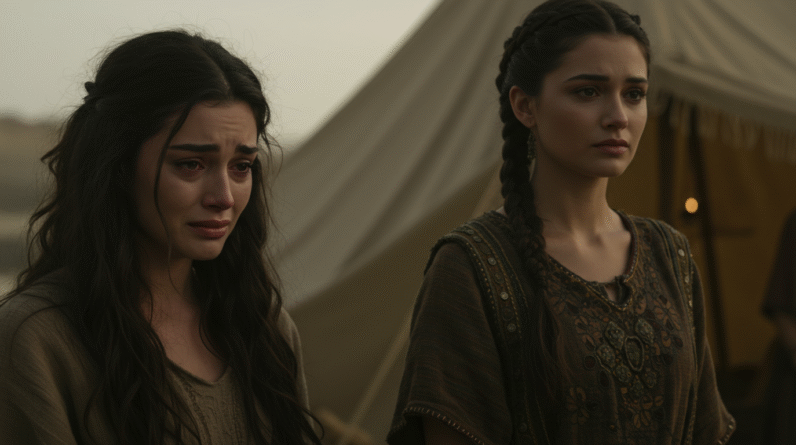Sarah And Hagar: A Story Of Choices, Consequences, And God’s Grace (Genesis 16)
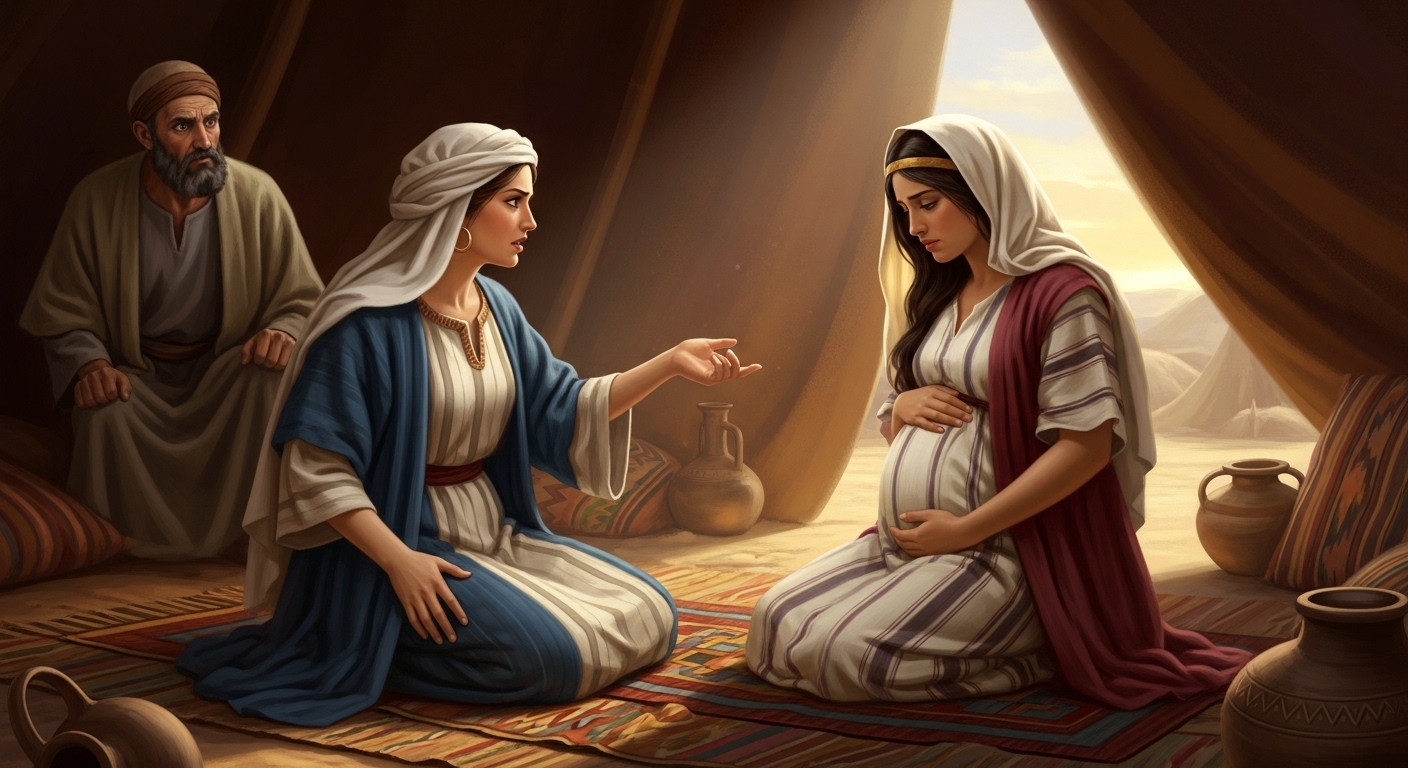
Introduction
Have you ever made a choice that felt like the only option at the time — and then watched it unfold into something messy and unexpected? If you’re honest, you’ve probably stood where Sarah and Hagar once stood: wrestling with desire, fear, and the pressure to fix a problem now. The story of Sarah and Hagar in Genesis 16 lands in that emotional territory. It’s a human story about choices and consequences, but it’s also deeply theological — revealing how God notices pain, judges harshness, and still offers grace.
You’re about to walk through Genesis 16 with a practical, faithful lens. You’ll see what happened, why it matters, and how God’s heart toward broken people shows up even in difficult family dynamics. This chapter isn’t just ancient history; it speaks to your relationships, your quick fixes, and the hope that God offers when plans go wrong.
📖 The Bible Foundation
Bible Verse: Genesis 16:1–6 (NIV) “Now Sarai, Abram’s wife, had borne him no children. But she had an Egyptian slave named Hagar; so she said to Abram, ‘The Lord has kept me from having children. Go, sleep with my slave; perhaps I can build a family through her.’ Abram agreed to what Sarai said. So after Abram had been living in Canaan for ten years, Sarai, his wife, took her Egyptian slave Hagar and gave her to her husband to be his wife. He slept with her, and she conceived. When she knew she had conceived, she began to despise her mistress. Then Sarai said to Abram, ‘You are responsible for the wrong I am suffering.’ And Abram said, ‘Your slave is in your hands. Do with her whatever you think best.’ Then Sarai mistreated Hagar; so she fled from her.”
Read Genesis 16:1-6 on Bible Gateway: https://www.biblegateway.com/passage/?search=Genesis+16:1-6&version=NIV
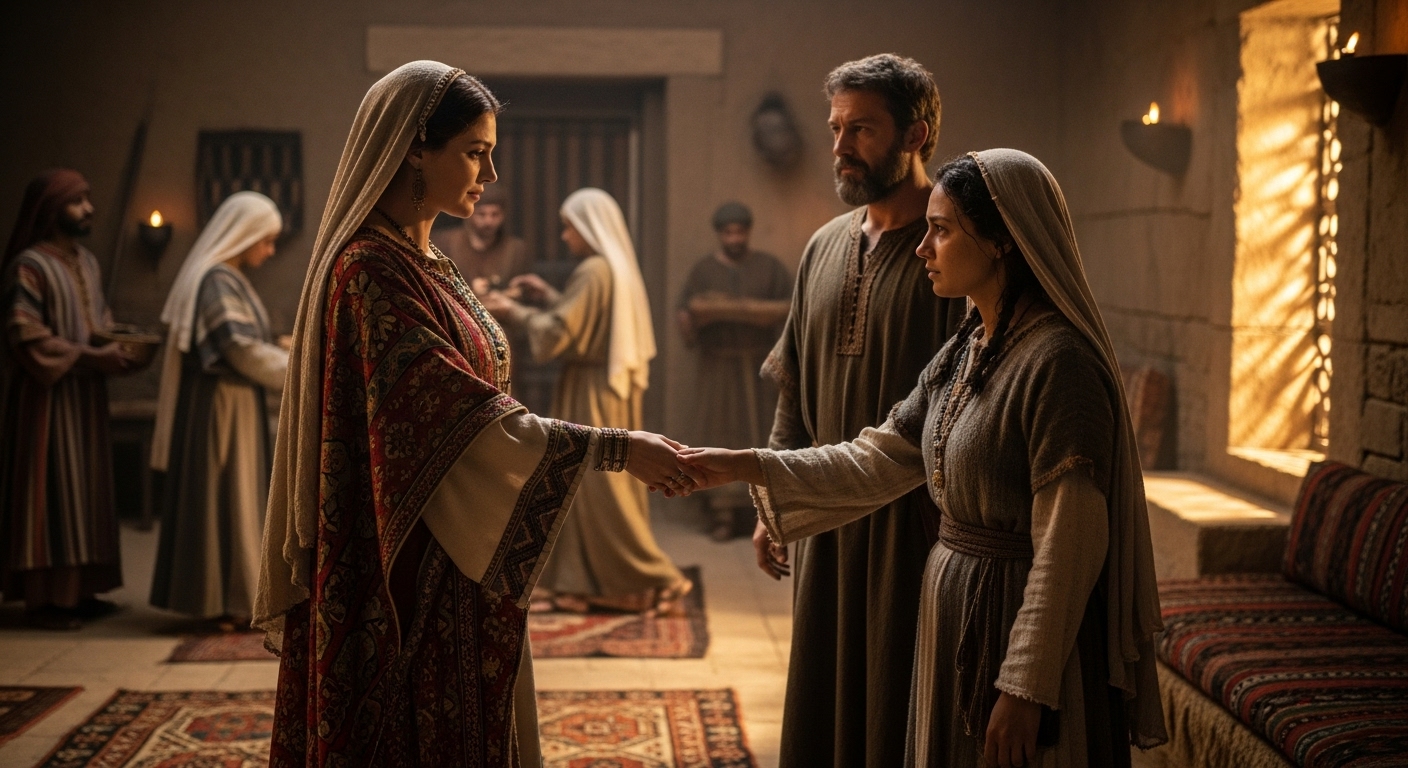
This passage gives you the immediate setup: Sarah (then Sarai) is barren, she offers Hagar (her Egyptian servant) to Abram (Abraham) as a surrogate, Hagar conceives, tensions explode, and Hagar runs away. On the surface, you see a family drama. Under the surface, you see cultural practices, wounded pride, power imbalance, and a decision born of impatience rather than trust.
The context is important: God had promised Abram descendants, but the promise hadn’t yet been realized. Rather than wait on God’s timing, Sarah and Abram try a human workaround. That decision sets up pain for Hagar, who becomes the most vulnerable person in the situation.
🧠 Understanding the Core Truth
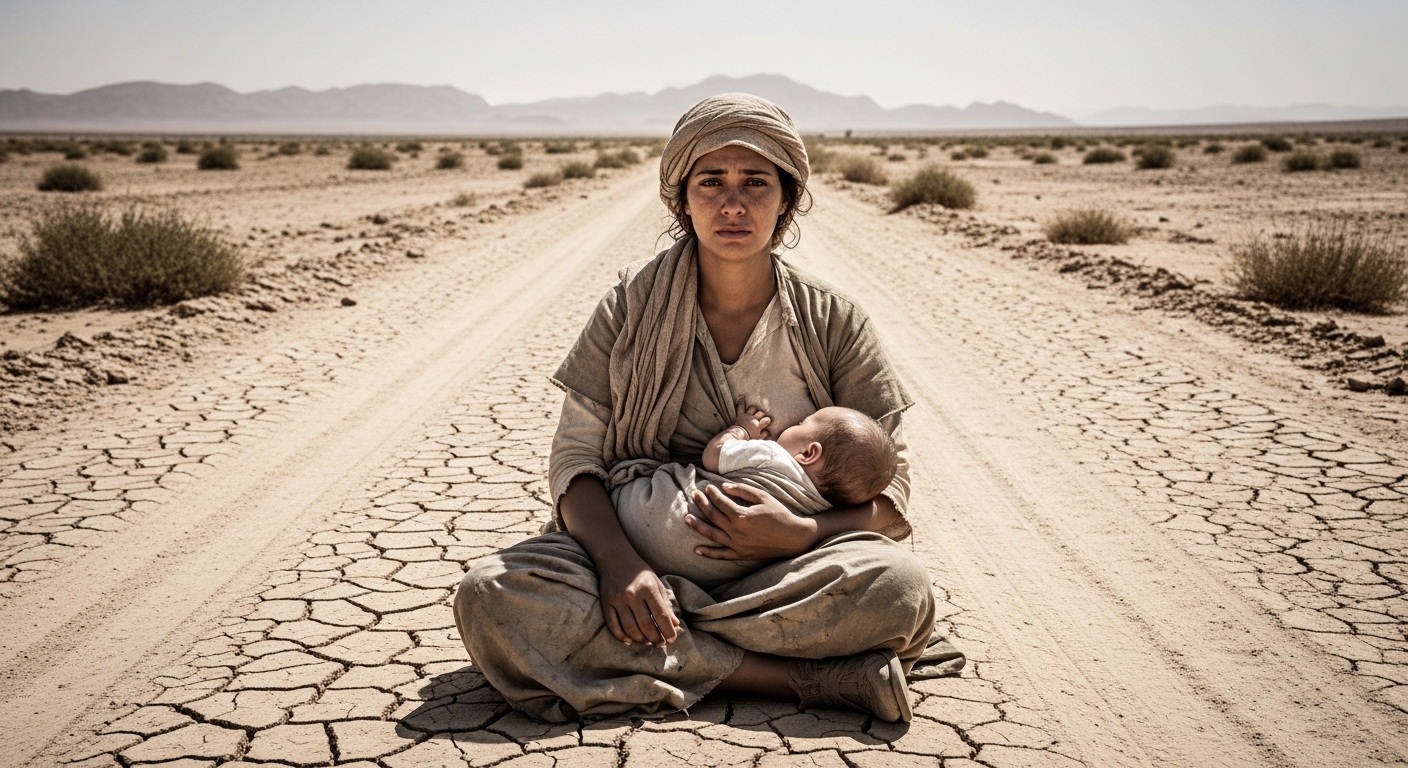
At its heart, Genesis 16 teaches you a core truth: human attempts to solve spiritual promises apart from God’s timing often create harm — especially to those with the least power. You can phrase it simply: choices have consequences, and God sees the consequences, especially when injustice and vulnerability are involved.
You see several layers here:
- A promise from God (descendants) met with human impatience.
- A cultural solution (surrogacy via a servant) that ignores dignity and trust.
- The emotional fallout: shame, blame, abuse, and flight.
God’s perspective — revealed as the chapter continues — highlights that He notices Hagar’s pain and intervenes. That means, even where people sin and systems fail, God is aware and compassionate.
🌊 Going Deeper — The Hidden Meaning
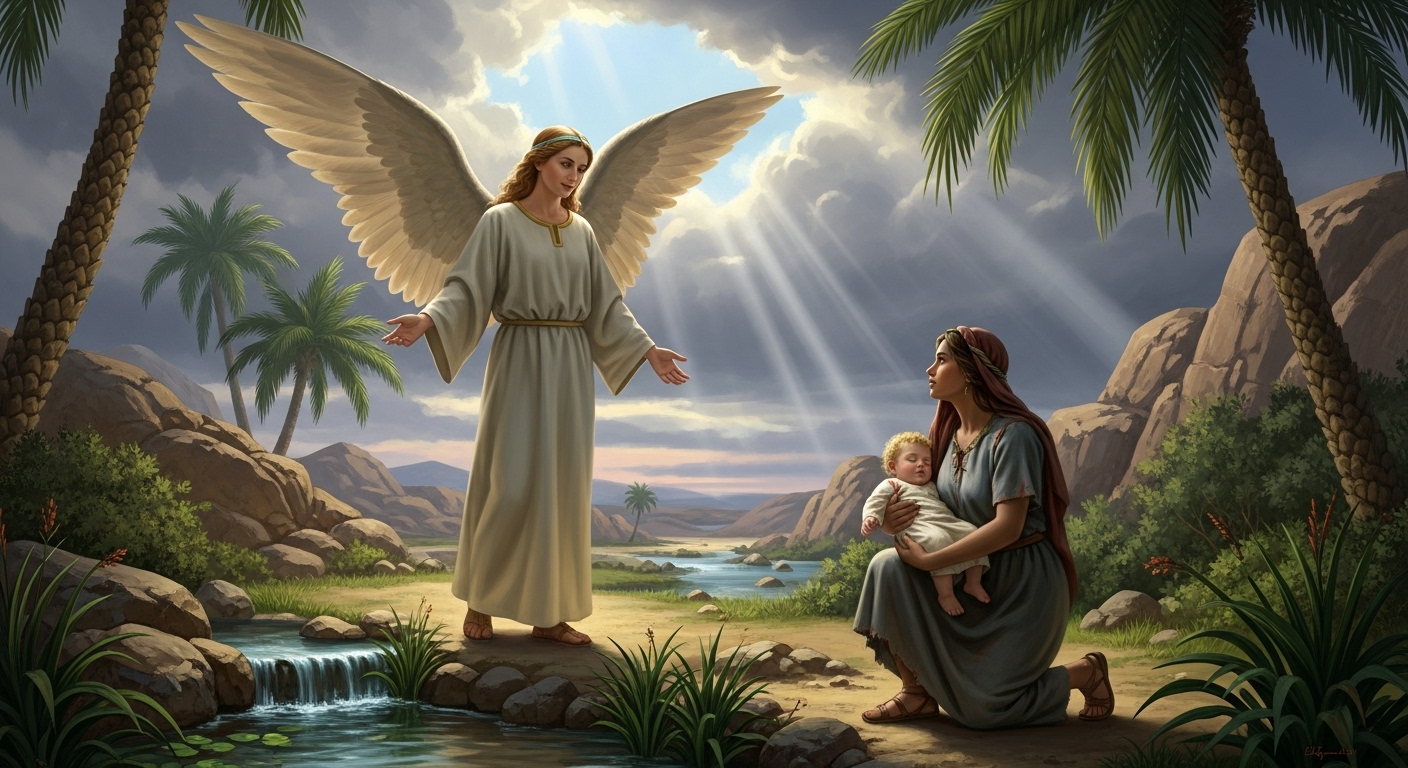
If you look deeper into Genesis 16 and the events that follow, a surprising truth emerges: God speaks to and blesses the one the world often forgets. When Hagar runs away and encounters the angel of the Lord, she receives affirmation and a promise for her son, Ishmael. Read Genesis 16:7–13 here: https://www.biblegateway.com/passage/?search=Genesis+16:7-13&version=NIV
God’s interaction with Hagar is significant. She’s an outsider — an Egyptian slave who’s been mistreated — and yet God sees her, calls her by name (“Hagar”), and gives her comfort and direction. This shows God’s preferential concern for the vulnerable and His ability to bring hope into bleak situations.
Relate this to another Bible story: consider how Jesus later reaches out to the marginalized — tax collectors, lepers, outcasts. The consistent message: God notices and honors the dignity of every person, especially those overlooked by human power structures.
💡 Modern Connection — Relevance Today
How does this ancient story speak to your life? More than you might expect. You live in a world with quick fixes — career shortcuts, relationship hacks, and instant solutions advertised as cures for longings that only time and trust can heal. Sarah and Abram’s decision to take control outside God’s timing echoes modern temptations: you might ask whether to manipulate a situation, coerce an outcome, or hurt someone else’s dignity to meet your need.
Think about the vulnerable people around you — employees, domestic workers, immigrants, children — who often bear the consequences of others’ shortcuts. The story invites you to consider how your choices impact those who can’t defend themselves. It also reassures you that God sees and cares for those who are hurt, even when the world ignores them.
Finally, the narrative invites you into patience and faithfulness. Waiting on God’s promises doesn’t mean passivity, but it does mean refusing quick fixes that cause harm.
❤️ Practical Application — Living the Message
You don’t have to solve every problem immediately. Here are simple actions you can take to live the message of Genesis 16 in your daily life:
- Pause before you act. When you feel pressure to “fix” something important, take a breath and ask God for wisdom before you decide.
- Protect the vulnerable. Look around and ask who might be harmed by your choices. Make decisions that uphold dignity, not just convenience.
- Own your part. If you’ve ever been like Sarah or Abram — acting out of impatience or pride — be willing to confess and make amends where possible.
- Trust God’s timing. Pray for patience and for a heart that waits on God without resorting to harmful shortcuts.
- Stand with the hurting. When you see someone in Hagar’s position, offer practical help and speak for their dignity.
These steps are small, but they reshape your daily decisions into a practice of faithfulness rather than convenience.
🌿 Faith Reflection Box
Take a moment. Where have you tried to “help” God’s plan by taking matters into your own hands? What vulnerable person might have been affected by your quick fix?
Key Takeaways:
- Your choices affect others, often those least able to defend themselves.
- God notices the marginalized and speaks hope into their despair.
- Waiting on God’s promises is hard, but far safer than self-reliant shortcuts.
- Confession, compassion, and protection of the vulnerable are practical ways to live faithfully.
👉 Q&A
Q1: Was Sarah wrong to suggest that Hagar be Abram’s wife? Answer: Yes, Sarah’s suggestion reflects impatience and a misuse of power. In Genesis 16:1-4, she treats Hagar as an object to fulfill her desire. That choice brought shame and conflict, showing how even well-intentioned solutions can become sinful when they violate someone’s dignity. Rather than trusting God’s promise, Sarah pressured a vulnerable person into a role she didn’t consent to freely. You can learn from this by choosing empathy and ethical solutions over expedience in your relationships.
Related: The Journey of Hagar: A Lesson in Faith and Resilience
Q2: Did God abandon Hagar when she fled? Answer: No — quite the opposite. When Hagar fled, God met her in the desert (Genesis 16:7-13). The angel of the Lord comforted her, named her son, and promised that Ishmael would become a great nation. This shows God’s attentiveness to those in distress and His willingness to bless even those affected by others’ wrongdoing. If you feel abandoned, remember that scripture repeatedly shows God seeking out the hurting (see Psalm 34:18)
Q3: What practical lesson can you take from Genesis 16 about choices and consequences? Answer: The practical lesson is to weigh your decisions not only by immediate gain but by their moral cost and impact on others. Genesis 16 demonstrates that shortcuts can inflict harm on the vulnerable and create long-term complications. Trust, patience, and compassion are better guides than panic-driven fixes. Make it a habit to consult Scripture and prayer when faced with major choices, and ask how your actions will affect those with less power. Romans 8:28 reminds you that God can bring good from broken situations, but that doesn’t justify harmful means.
See also: The Consequence of Sin and the Mercy of God – A Lesson from David’s Story (2 Samuel 12, Psalm 51)
🙏 Conclusion & Reflection
You’ve walked through Genesis 16 and seen a story that’s painfully human and deeply divine. Sarah and Hagar’s lives remind you that impatience and control can wound, especially when exercised over the vulnerable. But the chapter also offers you hope: God notices, speaks, and blesses even those who have been mistreated.
If you’re wrestling with a choice today, ask for wisdom. If you’ve been wounded by someone else’s impatience, remember that God sees you and has not forgotten you. And if you’ve been the one who acted hastily, humility and repair are not signs of weakness — they’re the beginning of grace.
A short prayer to carry with you: Lord, give me patience to wait on Your promises, the courage to protect the vulnerable, and a heart that seeks Your wisdom before I act. Help me to reflect Your justice and grace in every choice. Amen.

More Inspiration Awaits — Read These Next
👉 For deeper insight into Isaiah 40:31 and how it renews your strength in both faith and daily life
👉 For practical lessons on compassion and neighborliness from the Good Samaritan
👉 For a clear explanation of what we can learn from the Parable of the Good Samaritan
👉 For meaningful insights from the Parable of the Pearl and its hidden treasures
👉 For a deeper look at the Rich Man and Lazarus and what it reveals about the afterlife
👉 For guidance on the Parable of the Ten Virgins and preparing for God’s Kingdom
👉 For clarity on the Parable of the Lamp and how it calls us to shine our light
👉 For insights from the Parable of the Wedding Feast and the meaning behind the invited guests

📘 Jesus and the Woman Caught in Adultery – Grace and Mercy Over Judgement
A powerful retelling of John 8:1-11. This book brings to life the depth of forgiveness, mercy, and God’s unwavering love.
👉 Check it now on Amazon 🛒💥
🔥 “Every great message deserves a home online.” 🌍💬🏡
Don’t let your calling stay hidden. Start a Christian blog or website using Hostinger — with 99.9% uptime, a free domain, and SSL, your voice can shine for God’s glory anytime, anywhere.
💥 Begin today. 🛒 Try it RISK-FREE! ✅
✝️ “Your body is God’s temple — care for it with purpose.” 💪💖🏛️
Renew your energy and restore balance naturally. Mitolyn helps support a healthy metabolism, giving you the vitality to live out God’s calling with strength and confidence.
🔥 Unlock Your Metabolic Power! ⚡Burn More Calories & Feel Great With Mitolyn. 💪
👉 Start Today. 🚀 Check Price Now. 🛒💰
💰 As a ClickBank & Amazon Affiliate, I earn from qualifying purchases.
📖 Acknowledgment: All Bible verses referenced in this article were accessed via Bible Gateway (or Bible Hub).
🚀 Want to explore more? 👉 Dive into our new post on Why Jesus? and experience the 🔥 life-changing truth of the Gospel!



